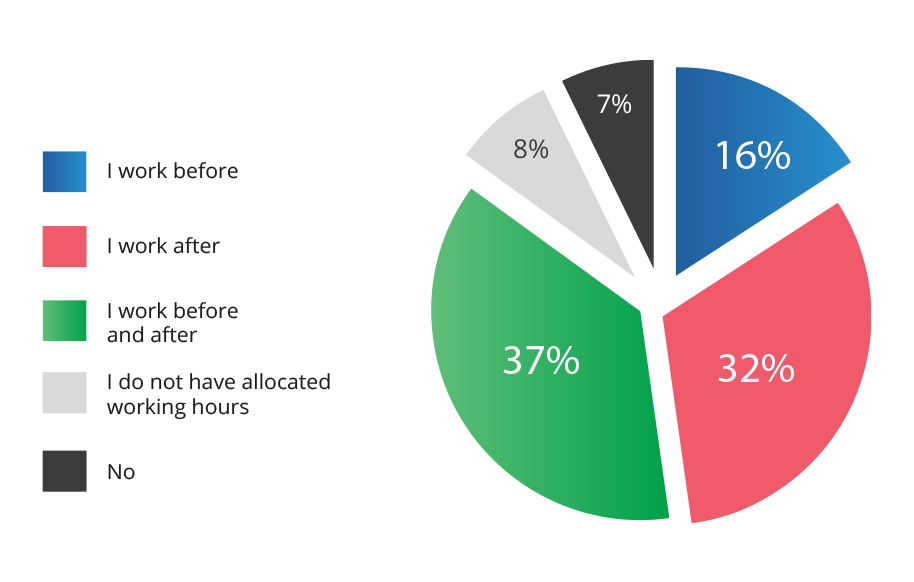What does the 2022 Business Trends Report mean for HR professionals?
- 5 Min Read
In one of the largest reports of its kind, Advanced has surveyed over 5,000 senior decision-makers in the UK, including 473 HR professionals. The respondents give their perspective on the challenges businesses are currently facing and the steps they are taking to meet them.
- Author: Alex Arundale
- Company: Advanced
- Date published: Oct 5, 2022
- Categories

The cost-of-living crisis and flat-line state of the UK economy present a real and present danger for many organisations. Following on from the disruption of the last two years, and the big changes in the way we work, it is important to understand how businesses are mitigating these threats and grasping opportunities.
According to Advanced’s Business Trends Report 2022, 78% of respondents say they are concerned economic conditions will impact their organisation’s profitability over the next 12 months. It is probably no surprise then that 42% believe business leadership is prioritising increasing profit, and 55% say business growth and development will be their main priority this year. Technology has a role to play in this, with 94% stating it supports their profitability and 54% reporting it helps with faster task completion.
How is hybrid working panning out?
Technology is also fundamental to the success of the now ubiquitous hybrid working. When adopting new technologies, 40% of respondents said the ability to adapt to remote working was the most important thing. And 60% of the HR professionals surveyed said adopting new technology had enabled people to collaborate more effectively when working remotely. Organisations need to provide tools that deliver business continuity – regardless of location.
Nearly half (47%) of all survey respondents said technology gives them the freedom to work from home, while 45% believe they are equally productive when working at home or in the office. Two-fifths (48% amongst HR professionals) reported hybrid working, supported by technology, has given them the opportunity to work at a more ‘productive time of day’.
This need for agility in working practices was noted in the survey, especially amongst HR professionals where 50% said they prefer to work outside of office hours due to a lack of disruptions. Technology has a role to play in helping people to ringfence their time so they can work in the hours that suit them best, driven by the HR Team and a supportive company culture.
Of course, hybrid working is not without its problems. It brings an increased risk of cyber-attack and 58% of HR professionals said they believe it has put their organisation at greater risk. Training employees to be more aware of these threats is essential. Employers can integrate this training into individual development programmes, giving people the opportunity to extend their skillset and learn to deal with a fast-changing online environment.
Another issue is how to maintain boundaries between work and home life when the two are blurring more than ever. The survey showed 85% of respondents reported they are working extra hours; 38% say it is because they have too much work to fit into their allocated hours. Only 3% said the early evening was their best time to work, yet 32% of respondents still put in extra hours after work, and 37% before and after.
Figure 1: Do you work outside allocated hours?

Technology can play a part in removing unnecessary distractions and enabling employees to concentrate on what matters so they can do their best work in their best hours. But organisations also need a proper framework and strong communications to help remote teams set these boundaries. Otherwise, we could see a downward trend in employee wellbeing.
The ‘always-on’ culture has the potential to accelerate levels of burnout. As well as the personal cost to employees, this also has a business cost: valuable staff members might leave and the business may gain an unattractive reputation among new talent. Both exacerbate problems already associated with the hot talent market.
Employee engagement is key – but is it now harder to measure?
The clear need for productivity makes successful employee engagement essential; 42% of HR professionals said employee engagement is this year’s business priority. But these engagement levels are not always easy to monitor and improve when people are working remotely.
Continuous performance management can help create a fully engaged workforce that feels more appreciated. But just one in five of the HR professionals surveyed say their employer uses it to have performance conversations, give feedback and set goals. Over 60% are still using some form of annual appraisal and 13% say they have no formal approach. A further 14% of these HR professionals admitted they do not measure the performance or productivity of the workforce at all, making it impossible to recognise, reward, support and train as needed.
Measuring and supporting employee performance is increasingly important given the challenges within the recruitment space. Nearly one-quarter (23%) of HR professionals are finding it very difficult to attract suitable candidates. Only 10% have a sustainable talent pipeline and do not struggle to make new hires. And 36% said that despite sufficient interest in their vacancies, it can still take a long time to fill roles.
Cultivating employee loyalty
Diversity and inclusion are central to finding and keeping talent, and 85% of respondents believe their business is working on reducing unconscious bias in recruitment. Measuring D&I progress requires collecting and analysing appropriate data. Undertaking a diversity pay gap report can provide a benchmark for future developments, highlighting areas for improvement and offering leaders actionable insights.
A demonstrably strong ESG strategy is also key for those looking to work for a company that takes its ethical responsibilities seriously. Almost three-quarters (72%)of respondents said their employer could provide tangible evidence of ESG activities, and 77% of HR respondents believe ESG is a growing priority for their organisation.
As Mark Maslin, professor of Climatology at University College London, said: “Sustainability actually saves you money, makes you more profitable and more attractive to customers and clients. It ultimately means that your employees really like working for the company.”
All these factors are crucial if organisations are going to succeed in today’s challenging business climate.
Download the Advanced Business Trends Report 2022 to get the full insights.








